-
Content count
37,172 -
Joined
-
Last visited
Posts posted by Preety_India
-
-
-
Last year's results from the same journal
On 27/03/2021 at 3:01 AM, Preety_India said:Main function is INTP and sub function is INFP.
Slight elements of INFJ-T.
Enneagram main - type 2
2w1
My trifixes are 8 and 7.
827(body center(gut) /heart center /head center) sp/sx
-
-
-
-
Disc profile test on
Truity. Com
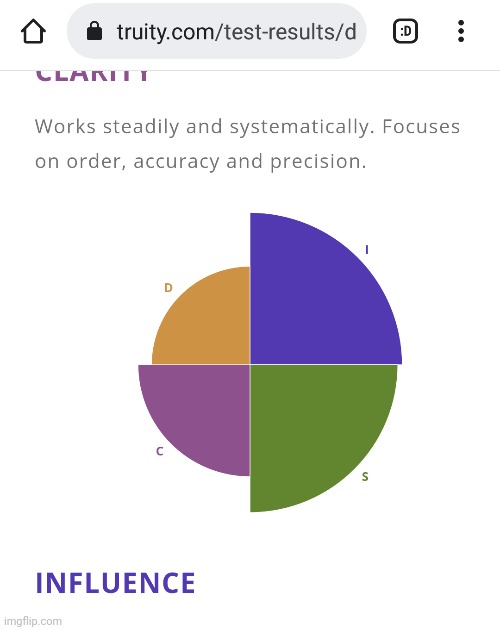
Your Type in Depth
Based on your responses, you lead with a Influence style, which means that your main focus is getting people motivated and working together.
Why Influence?
Influence people are enthusiastic collaborators, driven to bring people together.
Every workplace needs people who are highly sociable and lively, who rally people around a goal, who easily build warm and positive relationships, and who have a wide network of useful contacts.
At their best, others see Influence styles as self-confident, upbeat and persuasive storytellers and brainstormers who create a friendly atmosphere in the office.
On the downside, others see Influence styles as disorganized procrastinators, restlessly going off on tangents and jumping from one thing to another with a lack of follow through.
-
-
https://www.truity.com/test/which-personality-type-your-love-match
Your Match is an ENFJ
For ENFJs, romantic relationships provide an opportunity to make the most satisfying type of human connection. ENFJs crave relationships that are intimate, transformative, authentic and deep, and they probably enjoy falling in love more than any other type. They are nurturing, expressive, kind, encouraging and supportive. When their partners are feeling troubled or depressed, ENFJ partners will do everything in their power to bring the smiles and sunshine back into their lives.
Despite their natural warmth, ENFJs have strong values and a well-developed sense of their own dignity. When they feel a need to defend themselves or correct the mistakes of others, they can be sharp-tongued and direct in their observations and criticisms. But they see conflicts with loved ones as a product of misunderstanding and not bad intentions, and that is why they never stay mad for long. Their standards won’t be compromised, but neither will their commitment to love, and their inherent gentleness prevents them from doing or saying anything that will cause lasting damage.
The Downsides
It is very important for ENFJs to feel noticed, appreciated, cherished and loved—often, as in all the time. This isn’t inspired by insecurity, but rather by their idealistic notions about what love should be. They won’t ask for these things, however; they expect their significant others to offer them automatically without any prompting. So when normally warm and affectionate ENFJs suddenly become quiet and distant, there’s an excellent chance they’re feeling unappreciated and unloved and are worried about the state of their relationships.
Where to Find Your ENFJ Mate
ENFJs are driven to help others, and can be found in any setting where they might have the opportunity to change the world. Try volunteering for a charity or nonprofit and you're sure to encounter a few, especially if the organization is involved in guiding or inspiring youth.
In school, ENFJs are often found studying humanities or social sciences. In the work world, ENFJs can be found in a wide range of careers, but are usually working in an organization with a humanitarian mission and are often in a leadership role.
-
-
Took another disc profile test
This time I took the test on
https://www.crystalknows.com/disc-personality-test
Got this result
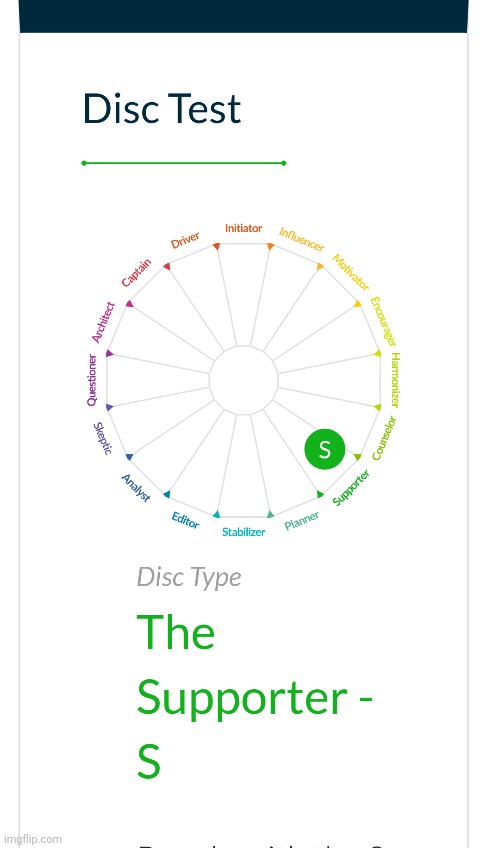
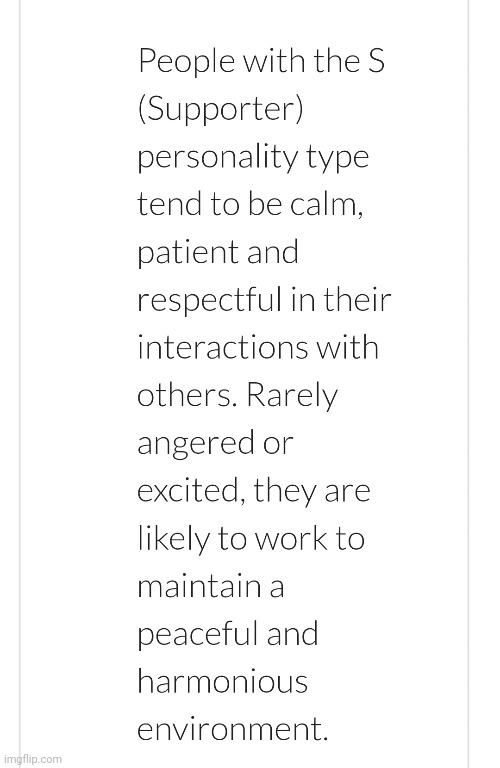
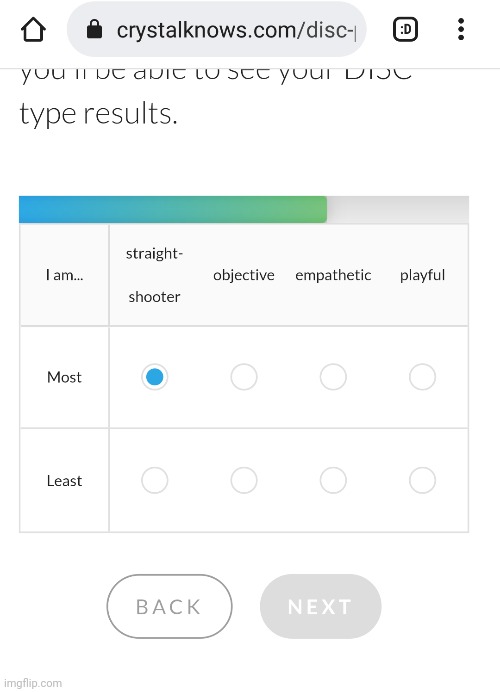
-
-
OK repeated the test on another website.
Both tests show the Type to be S
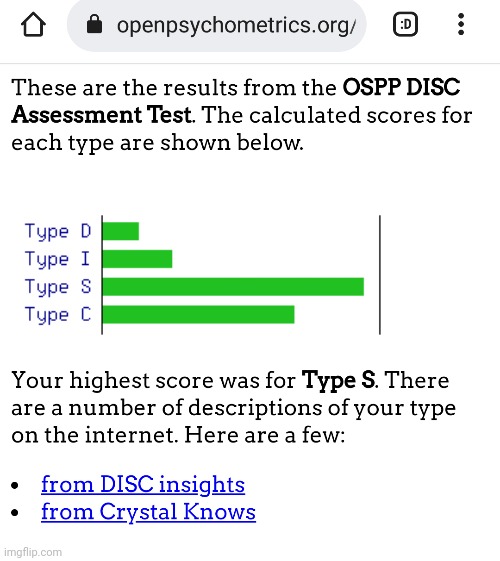
-
I'm not able to get a proper test
Anyhow after a lot of struggle
This is the result.

-
Disc test
Your Behavioral Style
The DISC system was created as a simple but powerful way to understand people's behavior and the way they interact with one another. This system describes people in terms of four broad styles: Drive, Influence, Support, and Clarity.
Although everyone uses all four styles, most of us depend on one or two most of the time. Understanding your dominant style can help you to understand how others see you, where conflict is likely to arise, and what sorts of work roles will suit you best.
DISC assessments are frequently used in the workplace to help teammates better understand one another and how to work together. Whether you're taking this assessment as a team activity or on your own, you can expect to gain a better understand of how you approach the people around you.
The report you're viewing now is a brief, free sample of your results. Once you have reviewed this free report, you can choose to upgrade to your full report for more depth and insight into your behavioral styles.
Let's begin by taking a broad look at your scores on the four DISC quadrants.
DRIVE
Takes charge and gets things done. Makes decisions and focuses on results.
CLARITY
Works steadily and systematically. Focuses on order, accuracy and precision.
INFLUENCE
Engages others and shares enthusiasm. Inspires and persuades others.
SUPPORT
Is helpful and shows care for others. Looks for ways to assist and serve.
Drive
Drive describes behavior that is assertive and results-oriented. When people show Drive, they tend to take charge, make decisions, and control the direction of tasks and projects.
People who are highly Driven are described as assertive, dominant, competitive, and confident. They like to take decisive action and don't mind taking risks to get things done. They may be described as natural leaders.
Drive is useful in leadership positions as it helps to push to get the job done. However, it doesn't work as well for people who are in supporting roles. Highly Driven people may be frustrated in roles with no opportunity for leadership.
Influence
Influence describes behavior that is engaging and enthusiastic. When people show Influence, they reach out to other people to build a sense of excitement and fun. They inspire and persuade those around them.
People who are highly influential are described as warm, friendly, and sociable. They love to be around other people and get a "high" from connecting with a group. They have a natural charisma.
Influence is useful in roles that require you to persuade others. Teachers, salespeople, managers, and parents all benefit from a command of Influential behavior. Highly Influential people thrive on human connection, and tend to wither when they're forced to do isolated, impersonal tasks.
Support
Support describes behavior that is helpful and caring towards others. When people use Support, they notice what others need and look for ways to serve them. They are empathetic and compassionate.
People who are highly Supportive are described as kind, caring, and helpful. They rarely have their own agenda; rather, they prefer to help other people reach their goals. Very Supportive people spend much of their time caring for and serving others.
Support is useful in caretaking and helping roles. Nurses, parents, and assistants of all kinds tend to use a high degree of Supportive behavior. Highly Supportive people are less suited to roles where they must take command and make tough decisions.
Clarity
Clarity describes behavior that is precise and detail-oriented. When people exercise Clarity, they work steadily on tasks requiring focus and accuracy. They take a systematic approach to finish the job.
People who are high in Clarity are described as efficient, methodical, and orderly. They enjoy working independently on well-defined tasks with clear instructions and expectations. They place a lot of importance on getting everything done correctly.
Clarity is useful in roles where accuracy and precision are important. Accountants, engineers, and computer programmers all need to exercise Clarity to be successful in their work. On the other hand, high Clarity people generally prefer not to have to motivate other people.
Your Type in Depth
Based on your responses, you lead with a Influence style, which means that your main focus is getting people motivated and working together.
Why Influence?
Influence people are enthusiastic collaborators, driven to bring people together.
Every workplace needs people who are highly sociable and lively, who rally people around a goal, who easily build warm and positive relationships, and who have a wide network of useful contacts.
At their best, others see Influence styles as self-confident, upbeat and persuasive storytellers and brainstormers who create a friendly atmosphere in the office.
On the downside, others see Influence styles as disorganized procrastinators, restlessly going off on tangents and jumping from one thing to another with a lack of follow through.
-
-
-
I'm not surprised this woman talks about war.
She was in the military.
Somehow she has always been a bit suspicious to me. Not what she shows.
She is not a good character in my book.
The fact that she even talks to Tucker Carlson is almost repulsive to me
-
-
-
Some templates for a stylish conference room design




-
During my business school days I had attended many conference rooms both in my country and abroad.
But they weren't good enough in my perspective.
If I have to create a conference room aesthetic it has to be a really stylish one.
-
There will also be a reading room.
And a singing room as well.
And a music room
-
There will be designated witch and tarot rooms, one for Rituals and the other for different spiritual practices of different cultures/religions/orders as well as one room for negative Entity Removal
The Productivity School will be a "work and learning" integrated school.
There will be halls for socialization to improve social skills
-
Going to the Productivity School is almost like a daily job
A good attendance rate and progress will lead to grades like A or B
A bad attendance rate and low progress in different departments leads to grades C or D

.gif.18c8e13b73c08674d44375dc163280a2.gif)

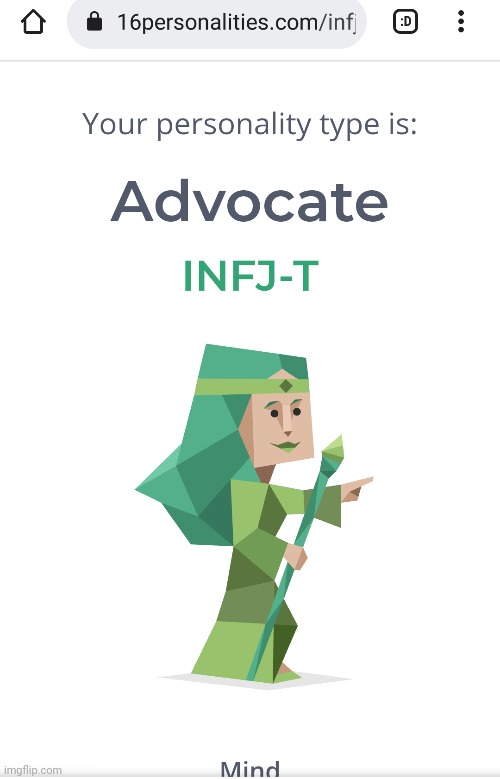
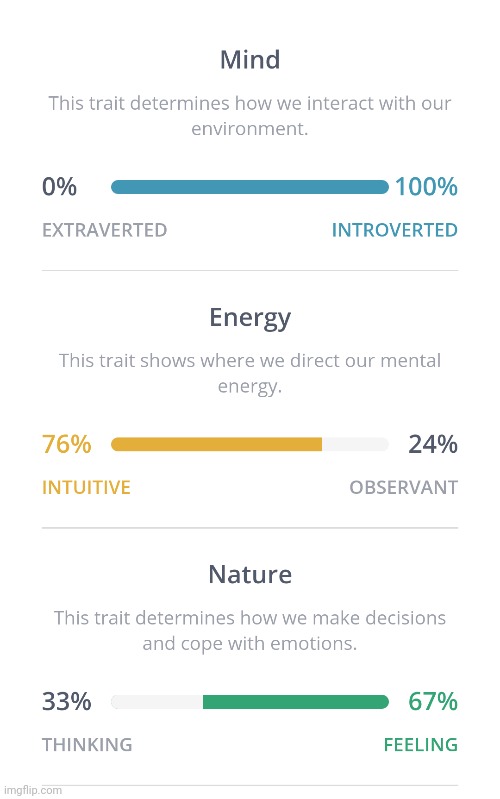
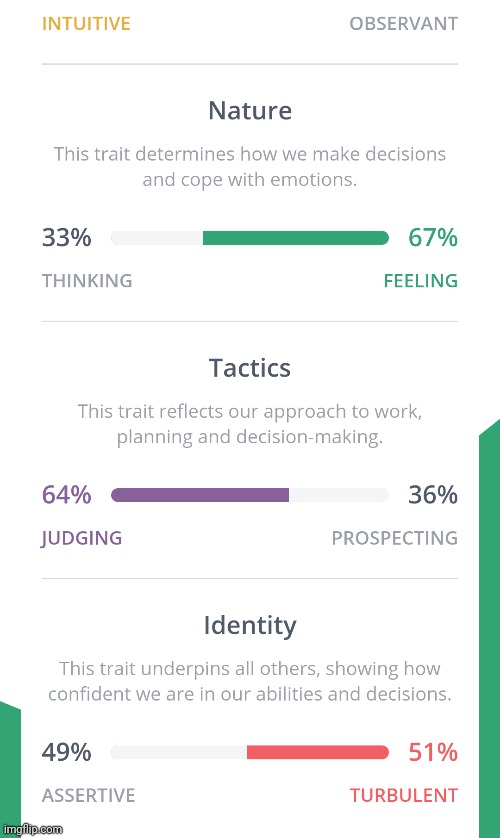
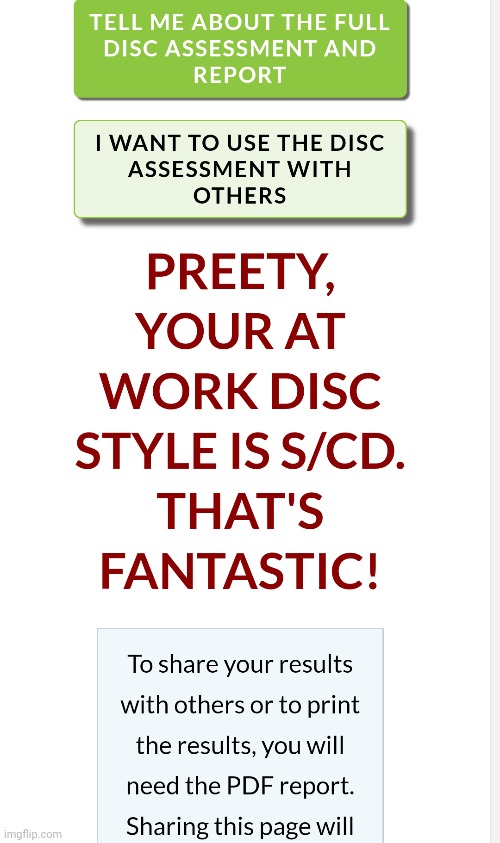
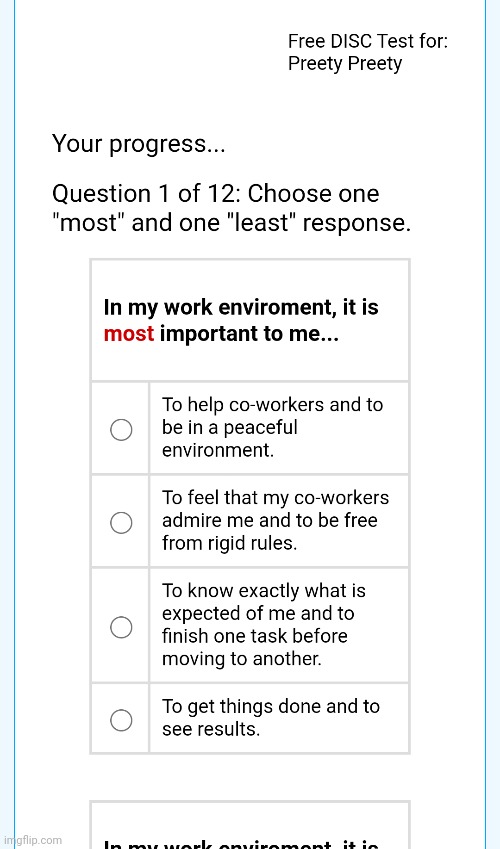
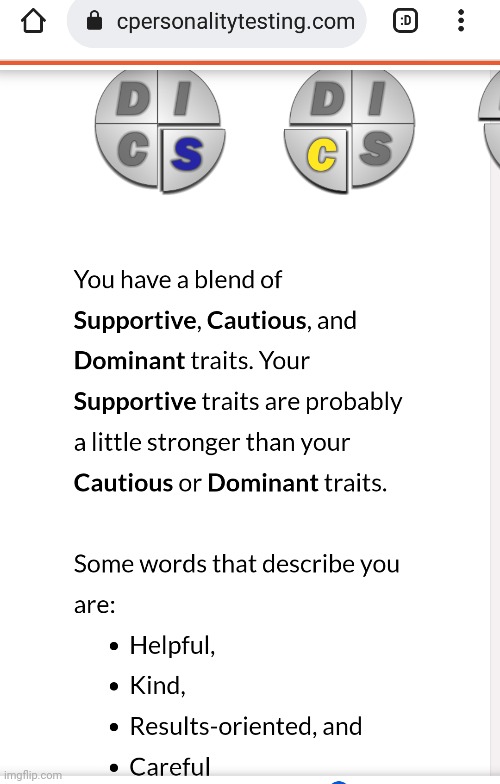
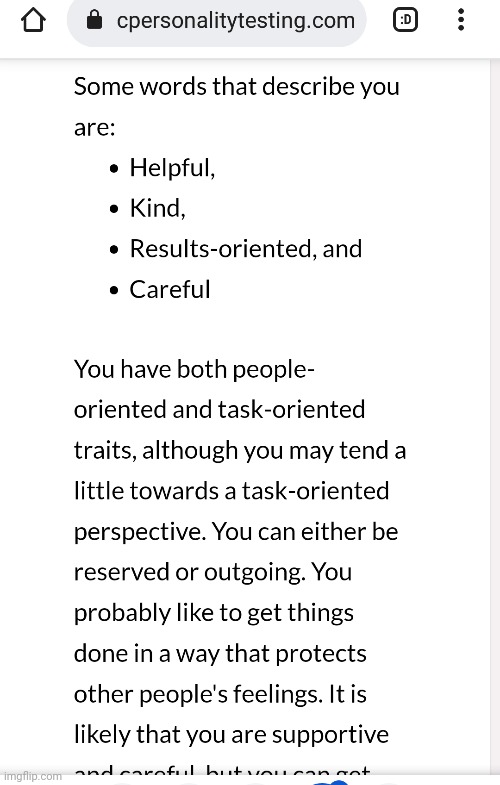
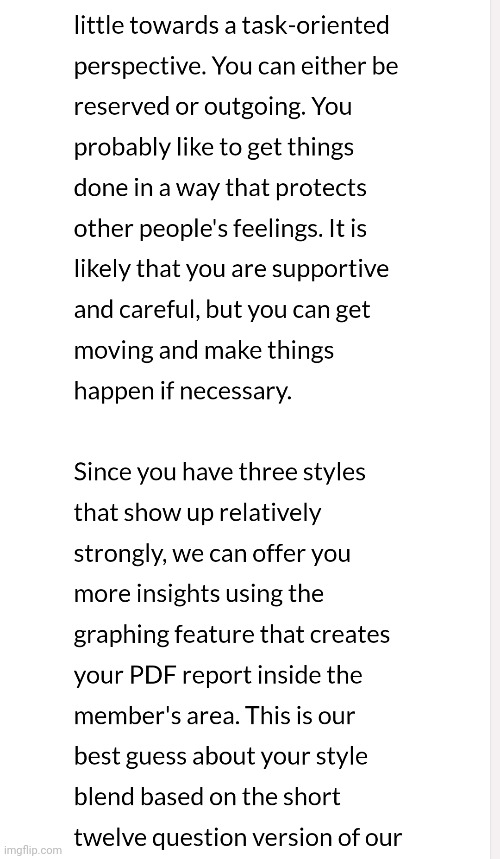
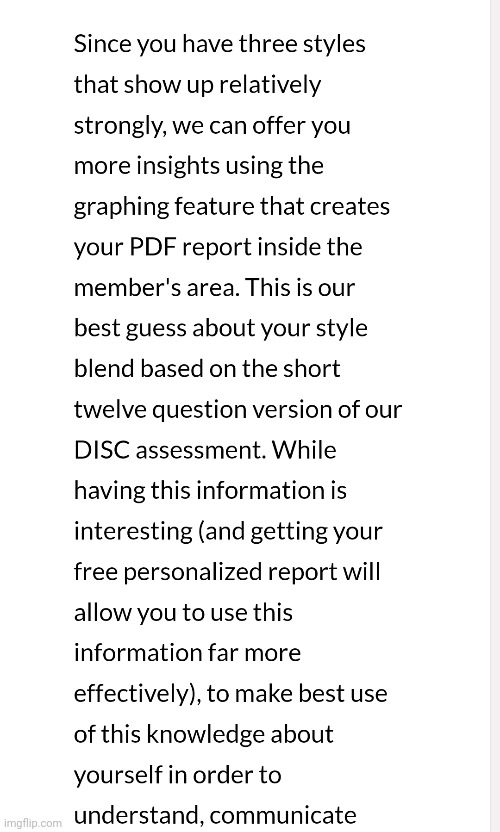








in Self-Actualization Journals
Posted
Continued